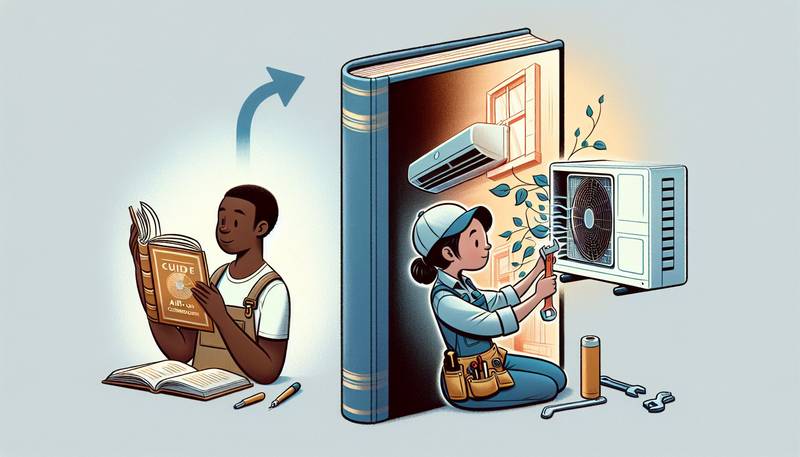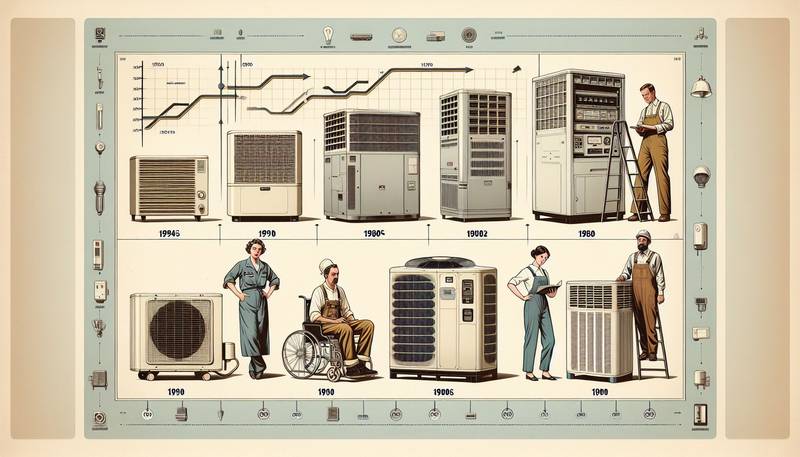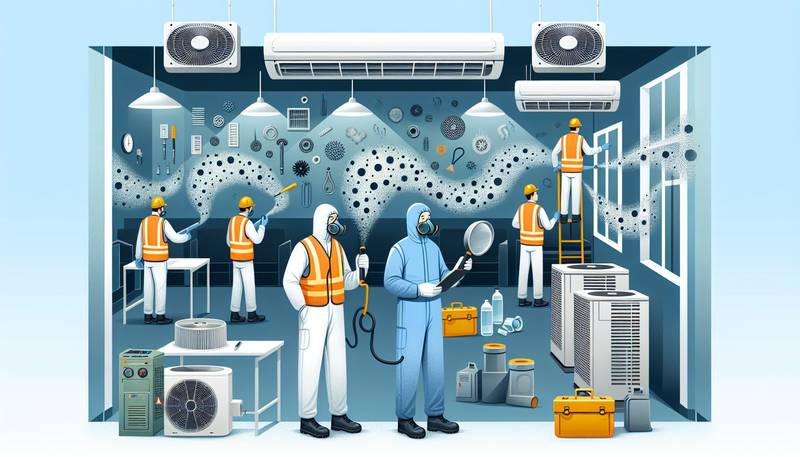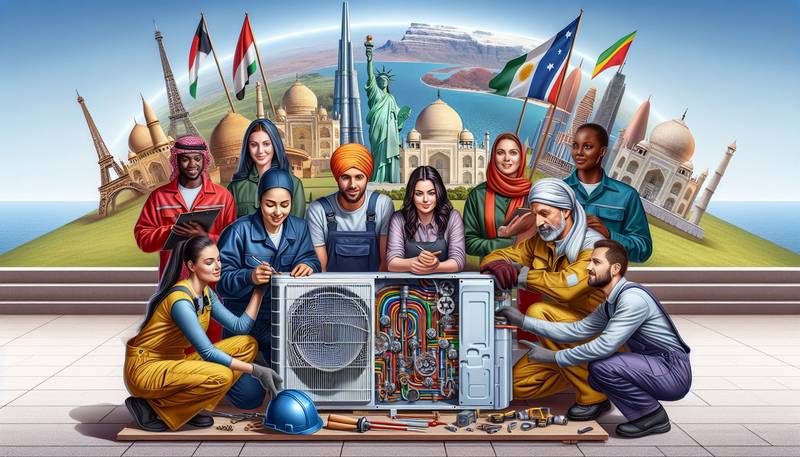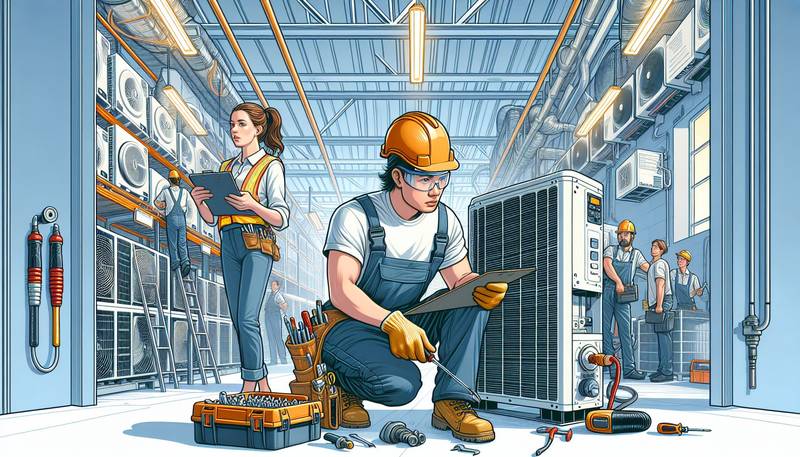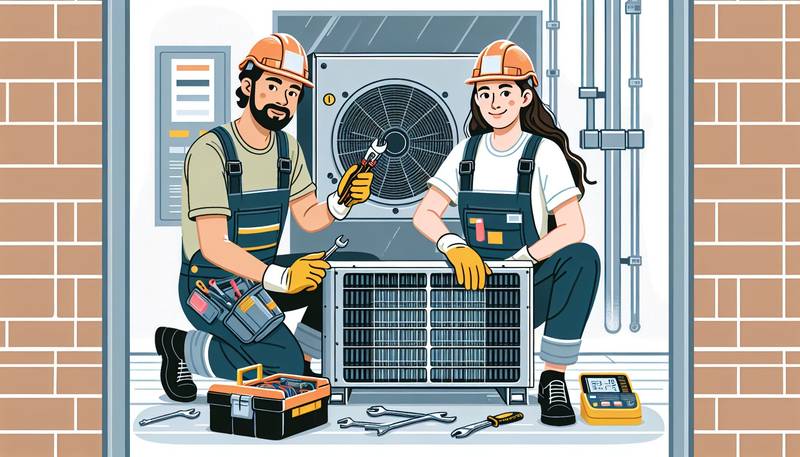From Learning to Earning: A Guide to Air Conditioning Certifications
From learning the basics of HVAC systems to mastering advanced techniques, air conditioning certifications play a significant role in shaping a successful career in this field.
Importance of Air Conditioning Certifications
Air conditioning certifications are essential for individuals looking to establish themselves as competent and skilled HVAC technicians. These certifications not only prove a technician's expertise but also demonstrate their commitment to professional development and excellence in their field. With the rapid advancements in HVAC technology and regulations, having the right certifications can set technicians apart from their competitors and open up opportunities for career growth and advancement.
Types of Air Conditioning Certifications
There are various types of air conditioning certifications available for HVAC technicians, ranging from entry-level to advanced certifications. Some of the most popular certifications include:
- EPA 608 Certification: This certification is required for technicians who work with refrigerants and ensures that they understand the proper handling and disposal of these substances.
- NATE Certification: The North American Technician Excellence (NATE) certification is a widely recognized certification that validates a technician's knowledge and skills in installing, maintaining, and repairing HVAC systems.
- HVAC Excellence Certification: This certification program covers a wide range of topics, including heating, ventilation, air conditioning, and refrigeration (HVACR) fundamentals, system design, and troubleshooting techniques.
- Manufacturer-Specific Certifications: Many HVAC manufacturers offer their own certification programs for technicians who specialize in servicing and repairing their products.
Steps to Earn Air Conditioning Certifications
Earning air conditioning certifications requires dedication, hard work, and a commitment to continuous learning. Here are some steps that technicians can take to earn their certifications:
- Gain Relevant Experience: Before pursuing certifications, technicians should have some hands-on experience working in the HVAC industry to develop practical skills and knowledge.
- Choose the Right Certification Program: Technicians should research various certification programs and choose one that aligns with their career goals and interests.
- Study and Prepare: To pass certification exams, technicians should study the relevant materials, take practice exams, and attend training programs to strengthen their knowledge and skills.
- Take the Exam: After adequate preparation, technicians should register for the certification exam and demonstrate their proficiency in the subject matter.
- Maintain Certification: Most certifications require technicians to complete continuing education credits or renew their certification periodically to stay up to date with industry trends and best practices.
Benefits of Air Conditioning Certifications
Achieving air conditioning certifications comes with a multitude of benefits for HVAC technicians, including:
- Increased Job Opportunities: Certified technicians are often preferred by employers who value professional credentials and expertise.
- Higher Earning Potential: Certified technicians are typically able to command higher salaries than non-certified technicians due to their specialized skills and knowledge.
- Enhanced Credibility: Certifications validate a technician's proficiency in the field and instill trust in customers, leading to a more reputable and successful career.
- Career Advancement: With the right certifications, technicians can pursue advanced roles, such as lead technician, supervisor, or instructor, and take on more challenging and rewarding projects.
Conclusion
Air conditioning certifications are invaluable assets for HVAC technicians looking to excel in their careers and stand out in a competitive industry. By investing in the right certifications, technicians can enhance their skills, credibility, and earning potential, ultimately paving the way for a successful and fulfilling career in air conditioning and refrigeration.
